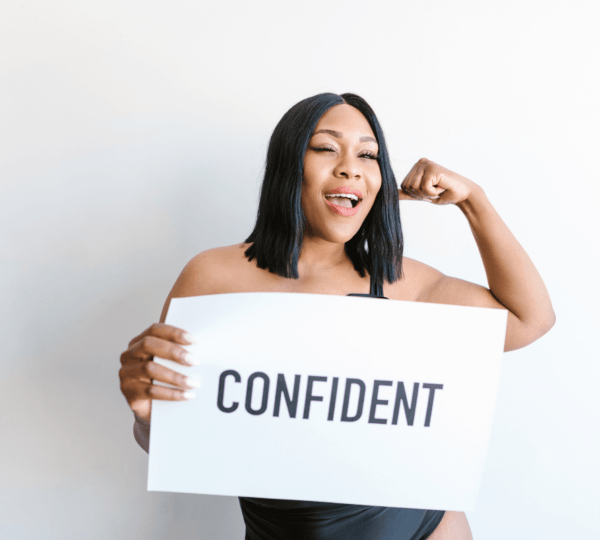
Breaking Through Self-Doubt: The Science of Confidence
In 1914, a massive fire destroyed Thomas Edison’s laboratory in West Orange, New Jersey. Decades of research, prototypes, and notes were reduced to ashes in a single night. As the flames roared, Edison, then 67 years old, watched alongside his son. Instead of despairing, he turned to him and said, “Go get your mother and all her friends. They’ll never see a fire like this again.”
Most people would have been crushed by the loss, but Edison saw it as an opportunity. The next morning, he told reporters, “I am not too old to make a fresh start. I’ve been through a lot of things like this.” Within weeks, he had rebuilt his lab and was back to work, pushing forward with new inventions.
Edison’s confidence wasn’t just blind optimism—it was built on experience, resilience, and a belief that failure was just another step toward success. His story is a testament to the power of breaking through self-doubt and trusting in one’s ability to adapt and thrive.
Whether you’re giving a presentation, starting a new career, or venturing outside your comfort zone, self-doubt can feel like an insurmountable mountain. However, just like Edison, you can overcome it. How? By understanding the science of confidence.
Understanding Self-Doubt: The Psychological Battle
Before we delve into building confidence, it’s crucial to understand the psychological foundation of self-doubt. At its core, self-doubt is a feeling of uncertainty about your abilities, judgment, or decisions. It’s the inner voice that questions whether you’re good enough or capable of success. This feeling can be linked to past failures, societal pressures, or even negative self-perception.
Psychologists agree that a little self-doubt isn’t necessarily harmful. In fact, mild self-doubt can act as a motivator, pushing you to prepare better and improve your skills. However, when self-doubt becomes excessive, it can paralyze you and prevent you from seizing opportunities or reaching your full potential.
At the heart of self-doubt is our sense of self-worth. When we feel inadequate or fear judgment from others, our confidence falters. Recognizing this link between self-doubt and self-worth is key to breaking through it and reclaiming confidence.
The Science of Confidence: What’s Really Happening?
Confidence isn’t an abstract concept; it’s deeply rooted in neurobiology and psychology. It’s something you can work on and strengthen, much like developing physical strength. Here’s what’s happening in your body and brain:
1. The Power of Neuroplasticity
Neuroplasticity refers to your brain’s ability to form new neural connections. Essentially, the more you practice positive behaviors, the more your brain rewires itself to make confidence a habit. A 2019 study published in Psychological Science discovered that practicing self-affirmations, such as reflecting on personal strengths, can reduce anxiety and enhance self-confidence.
Every time you challenge self-doubt and overcome an obstacle, you’re not just proving something to the world—you’re strengthening your brain’s neural pathways to make confidence a natural response to challenges.
2. Hormones at Play: Cortisol vs. Testosterone
Hormones play a significant role in shaping our confidence. When you experience stress or self-doubt, your body releases cortisol, a hormone associated with anxiety and fear. Conversely, confidence is closely tied to the release of testosterone, which is linked to assertiveness and calmness.
A 2012 study from Harvard Business Review showed that adopting a “power pose”—standing tall with your shoulders back for just two minutes—can increase testosterone levels and reduce cortisol, effectively giving you a quick confidence boost.
3. The Role of Cognitive Behavioral Therapy (CBT)
Cognitive Behavioral Therapy (CBT) is a psychological treatment designed to alter negative thought patterns. It helps individuals recognize and challenge self-doubt by reframing their beliefs. According to the American Psychological Association, CBT can replace negative self-talk with more constructive, confidence-boosting thoughts. Studies published in The Journal of Clinical Psychology highlight that CBT leads to long-term improvements in self-confidence and reduced anxiety.
How to Build Confidence: Practical Tips and Techniques
Armed with an understanding of the science behind confidence, let’s explore practical steps you can take to overcome self-doubt and build lasting self-belief:
1. Practice Self-Affirmations
Self-affirmations are a powerful way to rewire your brain. Each morning, spend a few minutes writing down positive aspects of yourself or reflecting on recent accomplishments. Over time, these affirmations will help shift your mindset from one of doubt to one of confidence.
2. Challenge Your Negative Thoughts
When self-doubt creeps in, pause and ask yourself: Is this thought based on facts, or is it just a feeling? If it’s based on feelings rather than facts, challenge it. For example, if you’re afraid of an upcoming presentation, remind yourself of past successes or the positive feedback you’ve received.
3. Engage in Power Posing
Body language has a powerful impact on mental state. Research supports the idea that adopting “power poses”—such as standing tall with your arms stretched wide—before important situations can help increase confidence by reducing anxiety and boosting assertiveness. Try these poses for two minutes before your next challenge.
4. Set Achievable Goals
Breaking down larger goals into smaller, manageable tasks helps build momentum. By achieving smaller milestones, you’ll gradually boost your confidence and prove to yourself that you’re capable of taking on bigger challenges. Each success builds the foundation for future accomplishments.
5. Seek Expert Guidance
Sometimes, the best way to overcome self-doubt is by seeking feedback from someone you trust. A mentor, coach, or therapist can offer valuable insight, provide constructive feedback, and help you build confidence through external validation.
6. Visualize Success
Visualization is a powerful technique used by athletes, musicians, and public speakers to improve performance. By mentally rehearsing success, you can reduce anxiety and feel more confident when facing challenges. Visualize yourself succeeding in your goals and immerse yourself in the details of the experience.
Fun Facts to Keep in Mind
- Did you know that self-confidence is linked to better physical health? Studies show that people with higher levels of confidence tend to have stronger immune systems and lower levels of stress.
- Practicing mindfulness meditation can also help reduce self-doubt. A study published in Psychological Science found that mindfulness helps people manage negative thoughts, fostering a sense of calm and confidence.
- Actor Will Smith has shared that his confidence stems from his commitment to learning. He believes that by accepting that you’ll always be a work in progress, you can avoid the debilitating effects of self-doubt.
Conclusion: Take Charge of Your Confidence
Breaking through self-doubt may seem daunting, but it is entirely possible with the right tools and mindset. Confidence is not a fixed trait; it’s something you can nurture and build over time through practice, self-awareness, and a bit of science.
So, the next time you face a challenge, don’t let self-doubt win. Practice these strategies, challenge your negative thoughts, and tap into your inner confidence. With the knowledge of the science behind it and the practical steps outlined above, you can build lasting self-confidence.
Take action now—start with a positive affirmation or try practicing a power pose before your next meeting or presentation. You’ve got this!
References
- American Psychological Association. (n.d.). Cognitive Behavioral Therapy (CBT). Retrieved from https://www.apa.org
- Cuddy, A. J., Wilmuth, C. A., & Carney, D. R. (2012). The benefit of power posing before a high-stakes social evaluation. Harvard Business Review. Retrieved from https://hbr.org
- Journal of Clinical Psychology. (n.d.). Effects of Cognitive Behavioral Therapy on Self-Confidence and Anxiety Reduction. Retrieved from https://onlinelibrary.wiley.com
- Psychological Science. (2019). The Impact of Self-Affirmation on Anxiety and Confidence Levels. Retrieved from https://journals.sagepub.com/home/pss
- Psychological Science. (n.d.). The Role of Mindfulness in Reducing Negative Thoughts and Enhancing Confidence. Retrieved from https://journals.sagepub.com/home/pss













